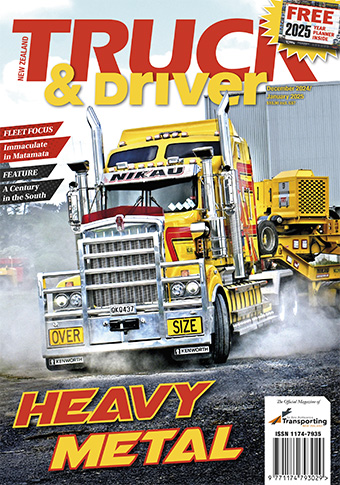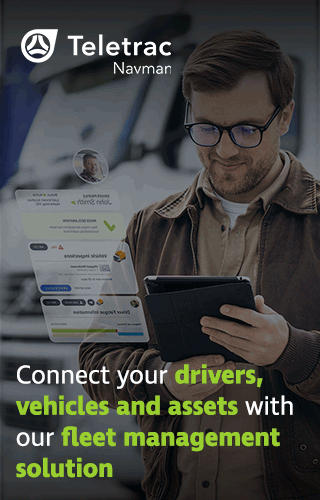Ia Ara Aotearoa Transporting New Zealand News


The most important name you’ve never heard of
Most people outside the tech sector have never heard of the name Satoshi Nakamoto. The reality however is that he could well become one of the most influential names of the 21st Century.
Nakamoto is credited as the inventor of cryptocurrency Bitcoin, which through its implementation is also the invention of the transaction ledger process called blockchain.
Interestingly, Satoshi Nakamoto is a completely fictitious person. He is merely a pseudonym for an anonymous person or group that in 2009 developed Bitcoin.
While the value of cryptocurrencies like Bitcoin has become extremely volatile in recent times, the blockchain process at their heart is threatening to completely change the way in which transactions happen worldwide – and that includes the movement of freight.
...Most people outside the tech sector have never heard of the name Satoshi Nakamoto. The reality however is that he could well become one of the most influential names of the 21st Century.
Nakamoto is credited as the inventor of cryptocurrency Bitcoin, which through its implementation is also the invention of the transaction ledger process called blockchain.
Interestingly, Satoshi Nakamoto is a completely fictitious person. He is merely a pseudonym for an anonymous person or group that in 2009 developed Bitcoin.
While the value of cryptocurrencies like Bitcoin has become extremely volatile in recent times, the blockchain process at their heart is threatening to completely change the way in which transactions happen worldwide – and that includes the movement of freight.
So, what is blockchain and how does it work? It is basically the technology that means that digital information can be distributed but not copied. It is a data record-keeping system that, instead of relying on a traditional central controlling authority, exists through hundreds or thousands of computers connected as a network, that must all agree on the validity of transactions within the system.
Data entered into the blockchain is therefore extremely difficult, if not impossible, to copy, steal or corrupt.
Whenever an entity makes a transaction, the network runs complex algorithms to determine if the transaction is valid. If it is, the network automatically adds it to the record of transactions – linking it to all the previous transactions in the "chain." This chain of transaction blocks is known as the blockchain.
Still confused? Perhaps this very simple explanation from blockchain technology company Blockgeeks will help: "Picture a spreadsheet that is duplicated thousands of times, across a network of computers. Then imagine that this network is designed to regularly update this spreadsheet – and you have a basic understanding of the blockchain."
So, if it is that simple, why is it so revolutionary and why are businesses all over the word starting to upskill to use blockchain? Well, William Mougayar, who authored the book, The Business Blockchain, described its usefulness using this analogy: "Imagine two entities (eg banks) that need to update their own user account balances when there is a request to transfer money from one customer to another.
"They need to spend a tremendous (and costly) amount of time and effort for coordination, synchronisation, messaging and checking to ensure that each transaction happens exactly as it should. Typically, the money being transferred is held by the originator until it can be confirmed that it was received by the recipient.
"With the blockchain, a single ledger of transaction entries that both parties have access to can simplify the coordination and validation efforts – because there is always a single version of records, not two disparate databases."
So, is blockchain really that relevant to the freight and logistics sectors here in New Zealand?
The answer appears to be a resounding yes. Global logistics giant DHL released a report last year suggesting that blockchain technology could be the key to addressing the complexity and improving the speed of logistics supply chains in the future.
The report stated that, "blockchain technology can help alleviate many of the frictions in global trade logistics, including procurement, transportation management, track and trace, customs collaboration and trade finance."
Blockchain use in a logistics supply chains means that individual products can be given a specific identification that allows them to be tracked and identified all the way from producer to consumer by all parties involved in that chain. Due to the network verification process this information is apparently incorruptible and is therefore described in DHL's report as the "single source of truth."
This inherent security in the blockchain process means that information is shared, is far more transparent and can be fully trusted to remain secure.
The DHL report argues that a more efficient global logistics environment is possible through widespread uptake of blockchain by allowing the technology to power leaner, more automated, and error-free processes. The benefits to our logistics sector and NZ as an export-reliant economy are obvious.
The technology has the ability to even remove the slow manual processes that continually hold freight up, including paper-based compliance imposed by government institutions such as NZ Customs or MPI. Regulators could be granted permission as a stakeholder to see into blockchains – allowing them to monitor and trace movements in real time, in full confidence that what they're seeing is accurate and up-to-date.
This real-time enhanced track and trace information could have a positive impact on reducing waiting time for trucks at ports and other pickup points and could automatically and accurately apply fees for avoidable delays. Blockchain could also remove the need for issuing invoices and the inevitably-long wait for payment. Payments could be issued instantaneously at the moment freight is delivered to where it's going – or even as it passes through different points along the supply chain.
So, while blockchain may not be common practice just yet, it is another example of the future disruptive technologies that – like automation and electric vehicles – are threatening to completely revolutionise the freight and logistics sectors.
You can thank Satoshi Nakamoto for that….whoever he is.




 + EQUIPMENT GUIDE - FREE
+ EQUIPMENT GUIDE - FREE
